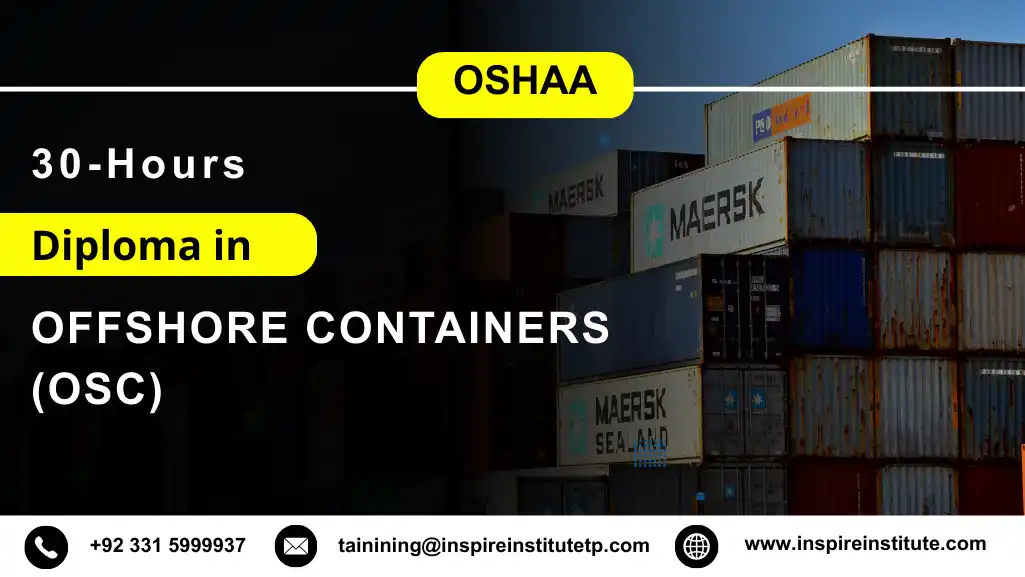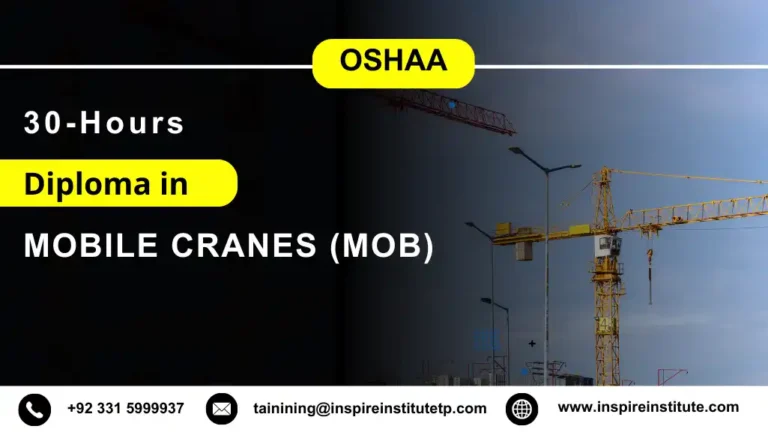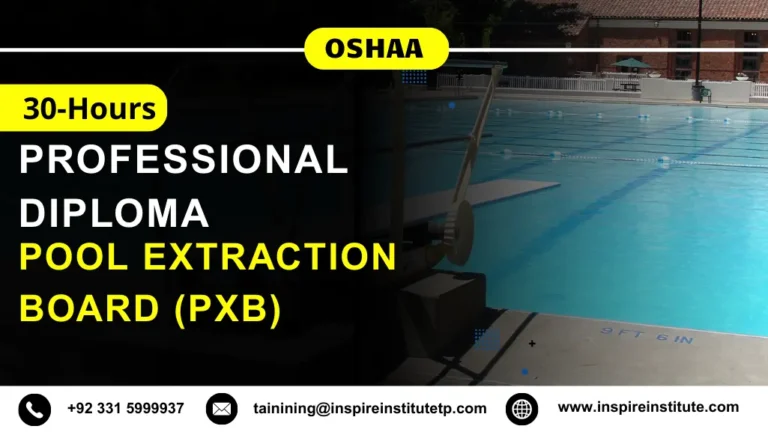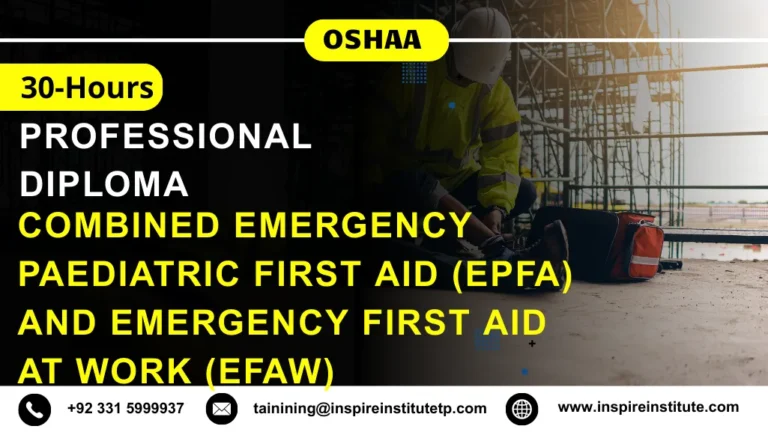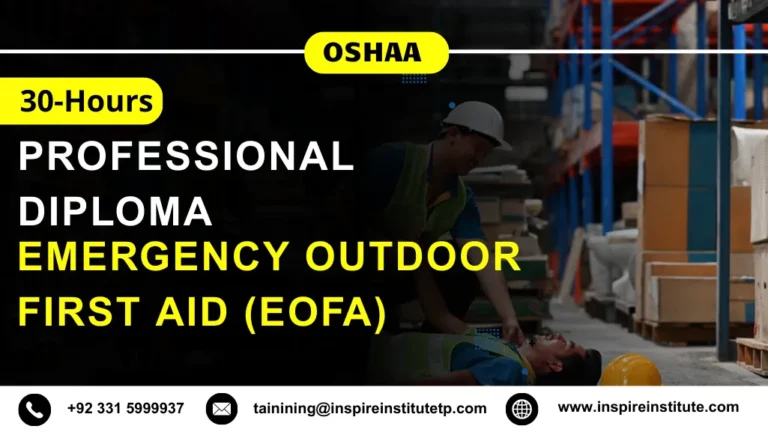OSHAA 30-Hours Diploma in Offshore Containers (OSC)
This program provides participants with in-depth insights into OSHA safety protocols, offshore container regulations, lifting operations, hazard identification, inspection requirements, and preventive maintenance practices. It also emphasizes the importance of international compliance, including industry best practices and regulatory frameworks that govern offshore container usage.
By completing this qualification, learners gain the confidence and competence to manage offshore containers safely, improve workplace safety culture, and meet global industry expectations. Whether you are a safety officer, offshore worker, lifting supervisor, or engineer, this course enhances your career prospects and demonstrates your commitment to maintaining the highest safety standards.
The OSHAA 30-Hours Diploma in Offshore Containers (OSC) is not only a professional milestone but also a valuable investment in safety excellence, operational efficiency, and international career progression.
Why Choose this Qualification
The offshore industry operates in some of the most challenging and hazardous environments, where safety, compliance, and operational reliability are critical. Offshore containers, used for transporting equipment, tools, and materials, are exposed to harsh weather, heavy lifting, and constant operational stress. Without proper handling, inspection, and certification, these containers can pose significant safety risks. The OSHAA 30-Hours Diploma in Offshore Containers (OSC) is specifically designed to address these challenges by equipping professionals with the knowledge and practical skills to maintain international safety standards.
This qualification not only enhances technical expertise but also demonstrates professional credibility in global offshore industries. It ensures that learners understand regulatory frameworks, inspection processes, and safe operating procedures, making them valuable assets to employers seeking compliance-driven, safety-conscious professionals.
Key Reasons to Choose this Diploma:
- Globally Recognized Certification – Gain a qualification that is widely respected in the oil and gas, marine, shipping, and offshore energy sectors.
- Regulatory Compliance – Learn OSHA standards and international requirements for the safe use, inspection, and certification of offshore containers.
- Practical Skill Development – Master hands-on skills in hazard identification, lifting operations, container integrity checks, and preventive maintenance.
- Career Advancement – Open doors to higher-level roles such as offshore safety officer, lifting supervisor, container inspector, or logistics coordinator.
- Risk Reduction – Learn techniques to minimize accidents, reduce equipment failures, and improve operational efficiency in offshore environments.
- Industry Relevance – Stay aligned with the latest offshore safety practices and meet the expectations of global employers.
- Flexible Learning – Suitable for both new entrants and experienced professionals, offering knowledge that applies across multiple roles and industries.
- Professional Credibility – Stand out as a trained specialist who can contribute to a culture of safety and compliance in high-risk offshore operations.
Choosing this diploma means committing to safety, quality, and professional growth. It provides a strong foundation for anyone looking to build or advance their career in offshore industries while ensuring that workplace safety standards are never compromised. With this qualification, you not only boost your career prospects but also play a vital role in protecting lives, equipment, and operations in the offshore sector.
Course Overview
UK based Qualification
Study Units: 9 Units
Evidence & Assignment Based
Mandatory Units
Who Should Take This Course
The OSHAA 30-Hours Diploma in Offshore Containers (OSC) is designed for professionals who work directly or indirectly with offshore container operations, lifting activities, logistics, and safety management. Since offshore environments present unique challenges, this course is ideal for individuals seeking to improve safety knowledge, enhance technical skills, and meet international compliance standards in their roles.
This diploma caters to a wide range of learners, from entry-level workers aiming to start a career in the offshore industry to seasoned professionals looking to update and validate their expertise.
This course is highly recommended for:
- Offshore Workers and Technicians – Personnel involved in daily offshore operations, container handling, and lifting tasks who need to follow strict safety practices.
- Logistics and Supply Chain Staff – Professionals responsible for coordinating the safe transport, storage, and movement of offshore containers in oil, gas, and marine industries.
- Health and Safety Officers – Individuals tasked with monitoring workplace safety, ensuring compliance, and reducing risks associated with offshore container operations.
- Lifting Supervisors and Rigging Crews – Workers directly involved in rigging, lifting, and crane operations who must understand container safety standards.
- Engineers and Maintenance Staff – Mechanical, structural, and marine engineers responsible for the design, inspection, and maintenance of offshore containers.
- Operations and Project Managers – Professionals overseeing offshore projects who require strong knowledge of container safety compliance to manage teams effectively.
- Inspectors and Auditors – Those engaged in container inspection, certification, and auditing to ensure compliance with OSHA and international offshore standards.
- New Entrants to the Offshore Industry – Individuals seeking to start a career in offshore operations and gain a globally recognized qualification to improve employability.
No matter your role, this course provides the skills and knowledge required to work safely, reduce risks, and comply with global offshore safety standards. By enrolling in this diploma, you not only strengthen your career opportunities but also contribute to a safer, more efficient, and compliant offshore working environment.
Course Benefits
The OSHAA 30-Hours Diploma in Offshore Containers (OSC) offers significant advantages for professionals working in the oil and gas, marine, and offshore industries. This internationally recognized qualification equips learners with the knowledge, skills, and confidence to manage offshore container operations safely and efficiently. Whether you are beginning your career or advancing into senior roles, this course adds real value to your professional growth.
Key Benefits of This Course:
- Globally Recognized Qualification – Gain a diploma that is respected across the offshore, marine, and oil and gas sectors, opening international job opportunities.
- Enhanced Safety Knowledge – Learn how to identify risks, manage hazards, and apply best practices for offshore container handling and maintenance.
- Compliance with International Standards – Get trained to meet OSHA and global offshore regulations, ensuring you and your organization remain compliant.
- Practical Skills for Real-World Applications – Acquire hands-on knowledge in inspection, testing, lifting operations, and container certification.
- Boosted Career Prospects – Increase your chances of securing higher-level roles such as Safety Officer, Offshore Supervisor, Logistics Manager, or Inspector.
- Reduced Workplace Risks – Contribute to minimizing accidents, injuries, and costly downtime in high-risk offshore operations.
- Flexibility for All Professionals – Suitable for both entry-level candidates and experienced professionals looking to update their knowledge.
- Improved Professional Credibility – Demonstrates your commitment to safety and operational excellence, earning the trust of employers and clients.
- Pathway to Career Progression – Serves as a stepping stone toward advanced offshore safety qualifications and leadership positions.
- Increased Confidence at Work – Build the confidence to manage offshore container operations effectively under challenging conditions.
By completing this diploma, learners not only gain technical competence but also the ability to lead safe offshore practices that protect people, assets, and the environment. These benefits ensure long-term career growth while contributing to safer offshore workplaces worldwide.
Eligibility Criteria
The OSHAA 30-Hours Diploma in Offshore Containers (OSC) is designed to be accessible to a wide range of learners, from beginners to experienced professionals. To maintain international standards and ensure that participants gain maximum benefit, certain entry requirements are recommended.
Educational Background
A high school diploma or equivalent qualification is preferred.
Candidates with technical or vocational training in oil and gas, marine, shipping, or safety management will have an added advantage.
Professional Experience
No mandatory work experience is required for enrollment.
However, prior exposure to offshore operations, lifting equipment, logistics, or safety roles can enhance learning outcomes.
Age Requirement
Learners must be at least 18 years of age at the time of registration.
Language Proficiency
Since the course is delivered in English, candidates should have a basic understanding of written and spoken English to comprehend course materials and assessments effectively.
Documents Required for Registration
A valid copy of national ID or passport.
Proof of educational qualifications (if applicable).
Completed registration form and payment of course fee.
The Qualification Process
The OSHAA 30-Hours Diploma in Offshore Containers (OSC) follows a structured qualification pathway designed to ensure learners meet international offshore safety standards and demonstrate competency in all required areas. Below is a step-by-step guide to help you understand the complete journey from enrollment to certification.
Step 1: Self-Assessment
Learners begin by reviewing the entry requirements to confirm eligibility. Candidates should hold at least a high school qualification or equivalent, with an interest in offshore operations and safety. Prior industry experience is beneficial but not mandatory.
Step 2: Registration
Complete the registration process by submitting the required documents such as a valid ID, proof of qualifications, and payment of the registration fee. This marks your official entry into the program.
Step 3: Induction
An induction session is conducted by an assessor to:
- Verify eligibility and documentation.
- Introduce learners to course materials, evidence requirements, and assessment procedures.
If all criteria are met, learners move forward. If not, registration is canceled and fees are refunded.
Step 4: Evidence Submission
Learners must submit assignments, case studies, inspection reports, or professional records that demonstrate their knowledge of offshore container handling, maintenance, and compliance with OSHA standards.
Step 5: Feedback and Revision
Assessors review submitted evidence. If any gaps are identified, feedback is provided, and learners may revise and resubmit until all requirements are met.
Step 6: Competence Evidence
Final evidence is submitted to confirm the learner’s practical competence in offshore container safety management. Once approved, all learning outcomes are marked as “criteria met.”
Step 7: Internal Quality Assurance (IQA)
The Internal Quality Assurance (IQA) team reviews the assessment process to ensure fairness, accuracy, and compliance with international standards.
Step 8: External Verification
The portfolio is submitted for External Quality Assurance (EQA), where external verifiers validate the authenticity and standard of the learner’s evidence.
Step 9: Certification
Upon successful verification, learners are awarded the OSHAA 30-Hours Diploma in Offshore Containers (OSC). This certification proves their advanced knowledge, skills, and professional competence in managing offshore container safety.

